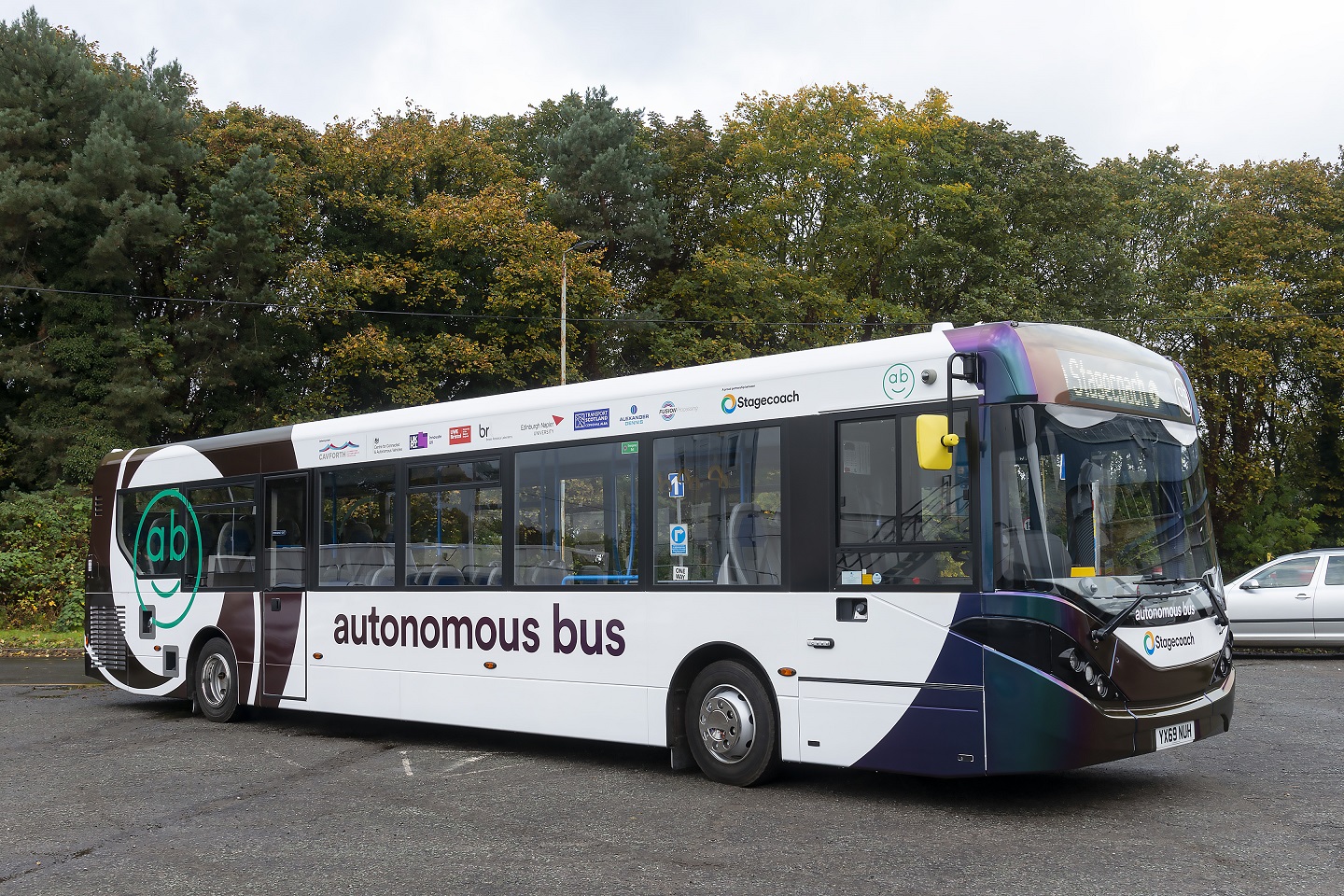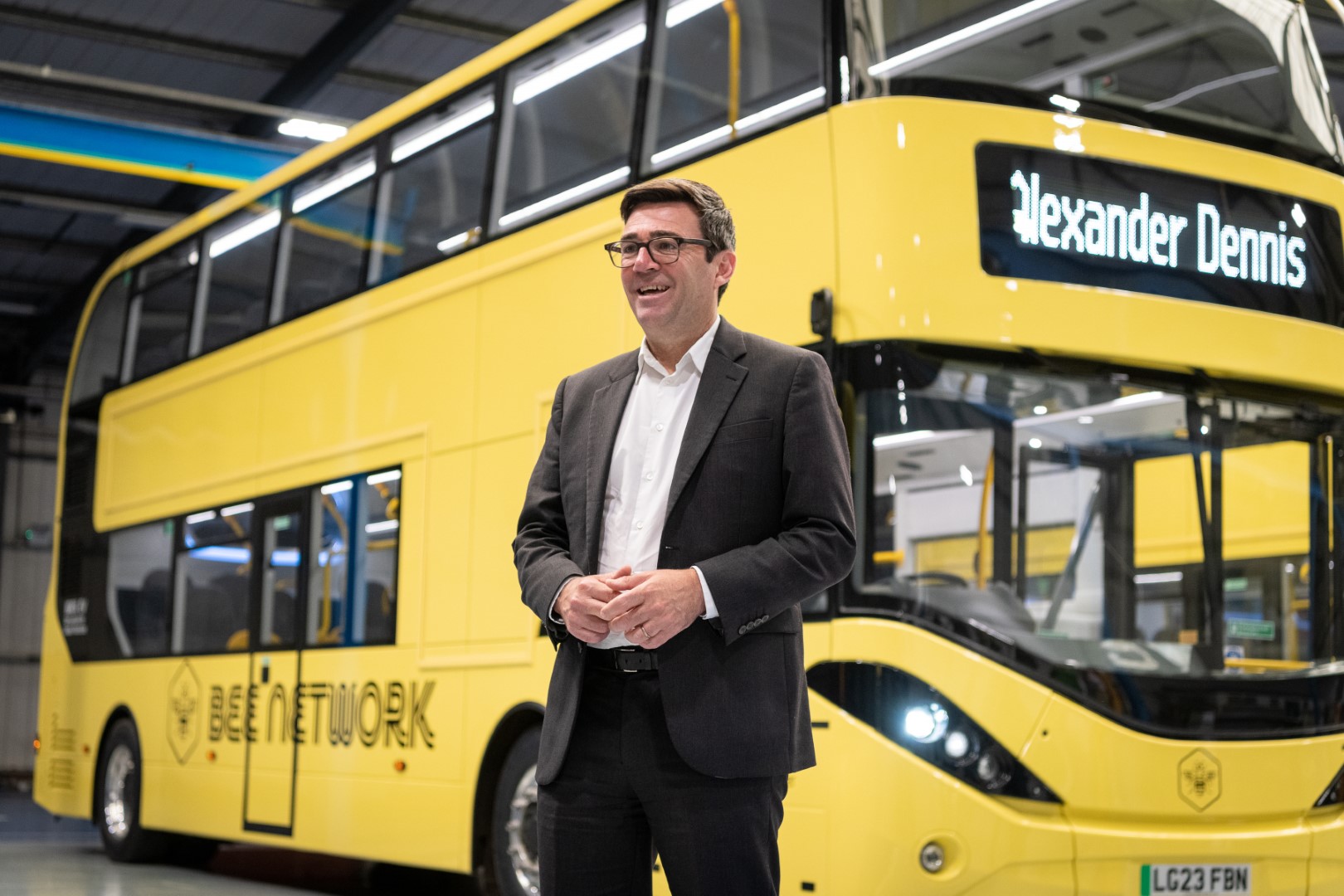Public patience may wear thin if reregulation schemes are not quick to make improvements, writes our politics correspondent
Word reaches me that the quality of bus services run by the new Bee Network in Manchester has been pretty poor since Andy Burnham, Greater Manchester’s Mayor, introduced his long-awaited franchise proposals. If anything, service quality has deteriorated.
I’m told buses are late, sometimes very late, and services are cancelled at the last minute or even simply vanish from the timetable. I’m not sure what the reasons are for this but, whatever they are, this is not a great advert for franchising. Mr Burnham will need to move quickly to get things sorted out if the concept of franchising isn’t to suffer real damage.
But it’s also important not to jump to premature conclusions. I guess there were always going to be teething problems when the franchise contracts were implemented but, with these franchise proposals having been so long in the making and with Andy Burnham having consistently said that franchising was the best approach to delivering a quality service, public expectations will have been high.
Perhaps what this proves more than anything else is that the quality of service is largely influenced by issues other than whether services are regulated or deregulated – a point that I have made many times before.
I have little doubt that bus operators will have a close eye on events in Manchester and will be quick to highlight poor performance if this continues. Other authorities with plans or aspirations to introduce franchising will also be watching closely to see what lessons, if any, can be learnt from Manchester’s experience.
It’s early days, of course. But if performance doesn’t improve then there will surely come a point when some will question if Mr Burnham’s plans have proved to be an expensive failure.
The reality is that franchising must deliver a step change in performance if the cost of its development and introduction, let alone the ongoing revenue risk to which the taxpayers of Manchester are exposed, are to be justified. If all it does is deliver more of the same, if performance remains patchy or at least no better than before franchising was introduced, then you have to ask whether it’s been worthwhile.
King’s Speech concerns
Meanwhile, we have a new parliamentary session following the King’s Speech on 7 November. For the transport sector, we have an Autonomous Vehicles Bill dealing with quite technical but important safety and safety-related issues around the introduction of autonomous vehicles, and the bill will clarify that while a vehicle is driving itself it will be the manufacturer not the “driver” that is responsible for the way it drives.
Further, it is extraordinary that we are going to see a draft Rail Bill published for consultation and pre-legislative scrutiny. This was after a lengthy rail review which involved extensive industry and stakeholder consultation and which led to a series of proposed reforms which received broad industry and, indeed, cross-party support. So why do we need a draft bill to be published for yet further consultation? It makes no sense whatsoever.

I’m at a loss to understand the government’s reluctance to actually proceed with this legislation and, given that the Rail Bill is understood to be quite short, it would take up very little parliamentary time, especially as it would almost certainly gain Labour’s support.
But at least the bus industry is spared any further legislation, for now at least, although of course none was expected. It is, however, worth pointing out that we still don’t have a date for ending the sale of new non-zero-emissions buses, and no decision on whether this government will allow the creation of new municipally-owned bus companies. The delay is bewildering.
Time is running out for Conservatives
Politically speaking, the King’s Speech was a bit of a damp squib. The legislative programme for the next parliamentary session – probably the last before the next general election – is full of bills of a very technical nature, from autonomous vehicles to digital markets, a bill dealing with pedicabs in London, a Football Governance Bill and so on. All very worthy stuff, no doubt, but these are hardly issues at the top of the electorate’s agenda as we head towards a general election.
In his recent party conference speech, Rishi Sunak tried to present himself as a “change candidate”. But his first King’s Speech as Prime Minister served up a meagre rationing of pretty dull technical stuff, laced with lots of references to long-term decision-taking for the benefit of our children and grandchildren, thereby creating an impression that it will be many years yet before things get better.
The Chancellor certainly needs to do something that gives his party a glimmer of hope
If this was meant to be a programme to help restore the Conservative Party’s fortunes, it’s hard to see how it passes that test. It was noticeable too that, with the smallest legislative programme for years, the King’s Speech was padded out with regular references to delivering on pledges previously made and to “continuing” to deliver.
For the Prime Minister to convince the electorate to give his party a fifth term in office – something that has never been achieved – is an enormous challenge even in good times. To achieve this, especially when inflation has been at record levels, even if it is now falling, and when we have endured a cost-of-living crisis, something exceptional needs to be delivered. The King’s Speech was not it.
Of course, we still have the Chancellor’s Autumn Statement to come on 22 November, and that may well serve up some rather more interesting proposals, with Jeremy Hunt under growing pressure from restless Conservative MPs to cut taxes. The Chancellor certainly needs to do something that gives his party a glimmer of hope that it can reel in Labour’s continued impressive 20-point lead in the polls. If he fails to do so, he will have one last shot in his March Budget but, by then, it may be too late.



























